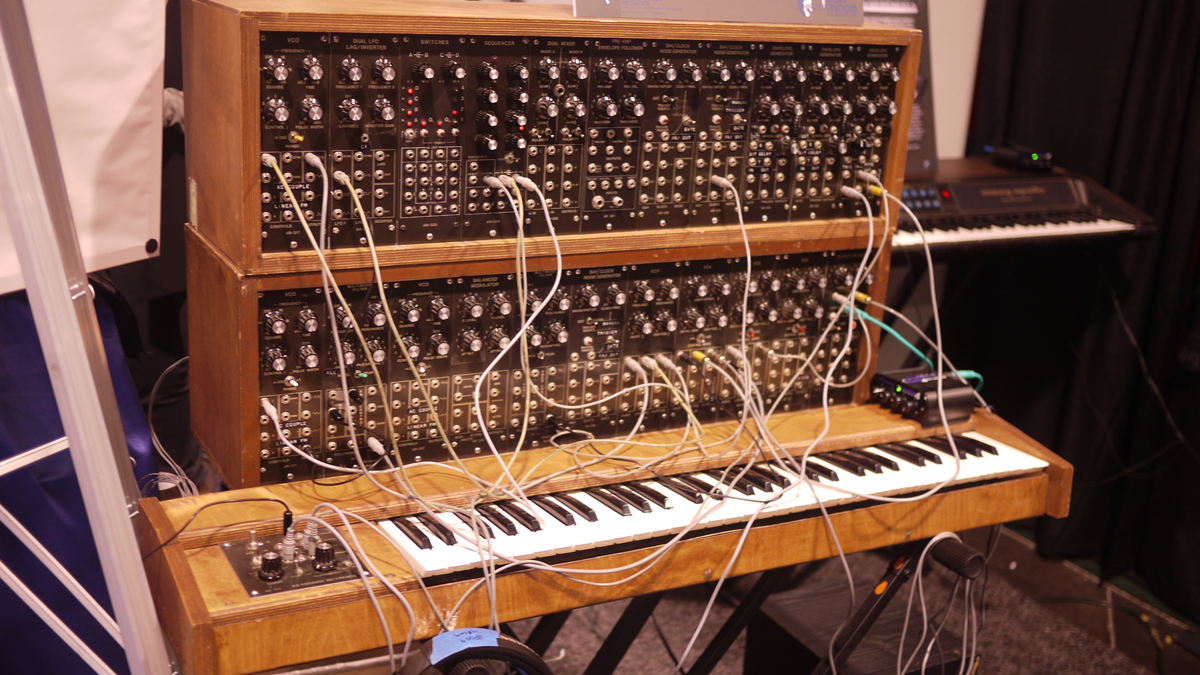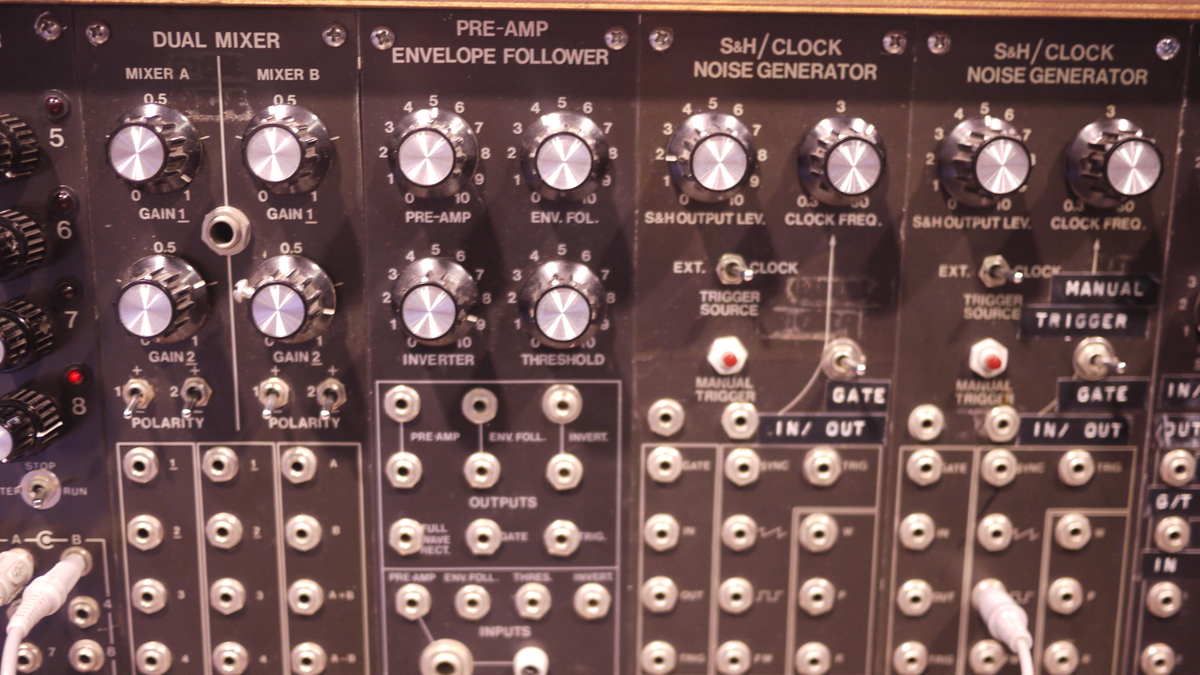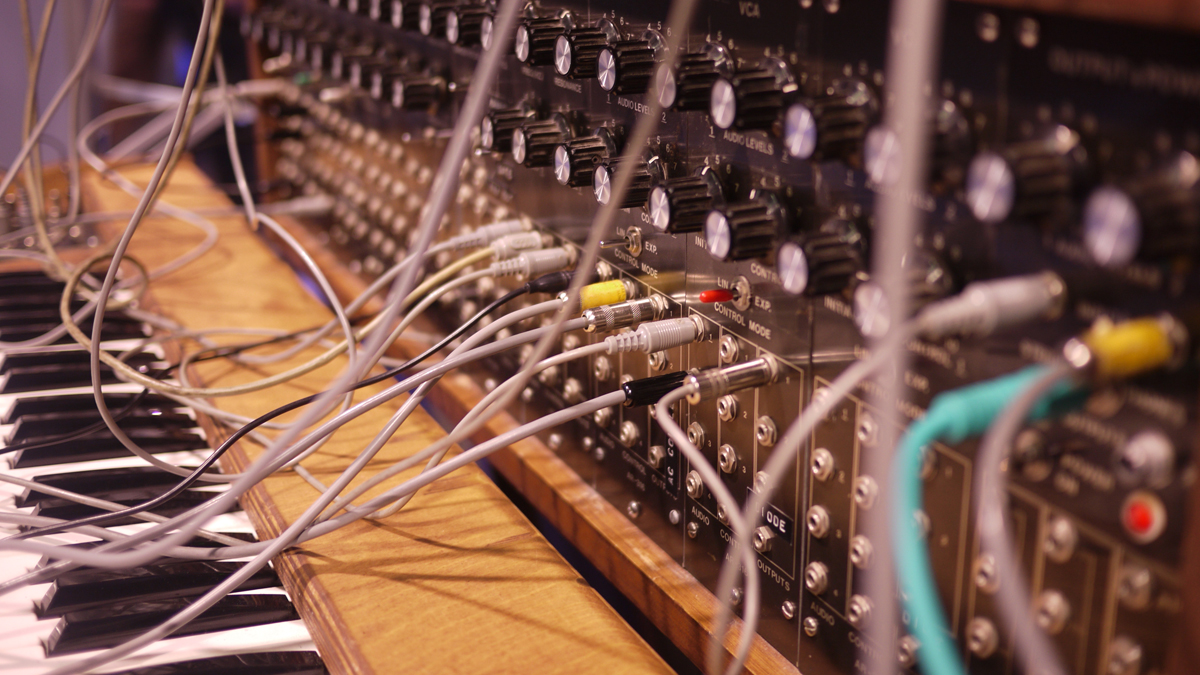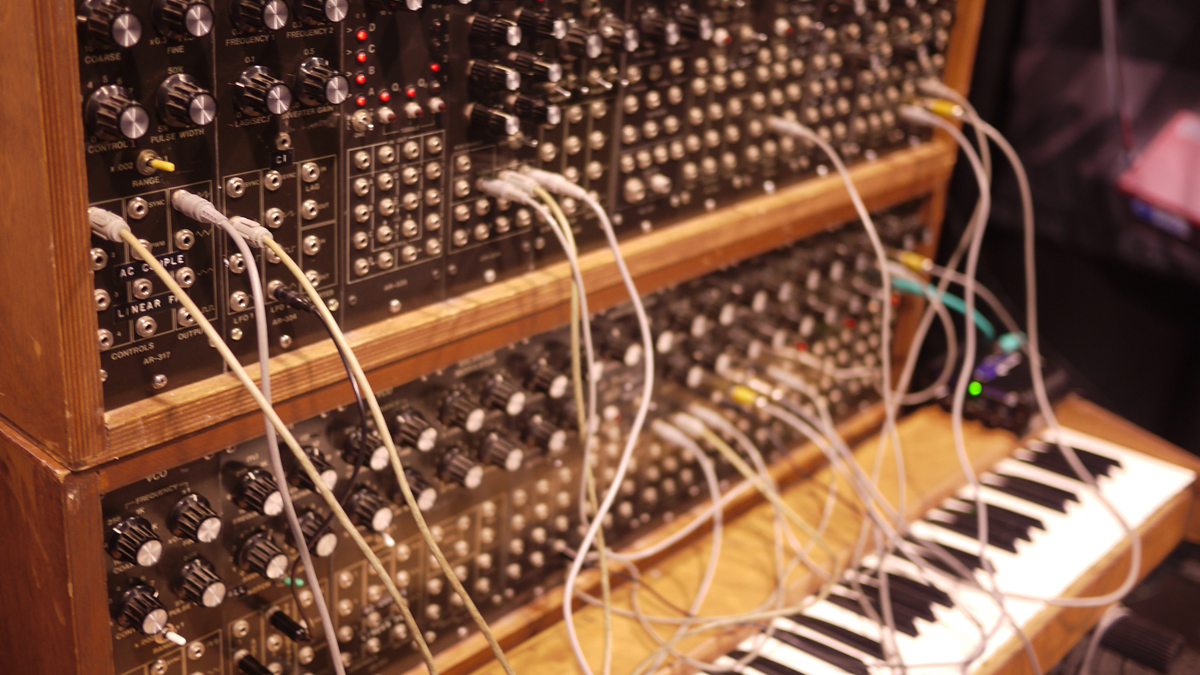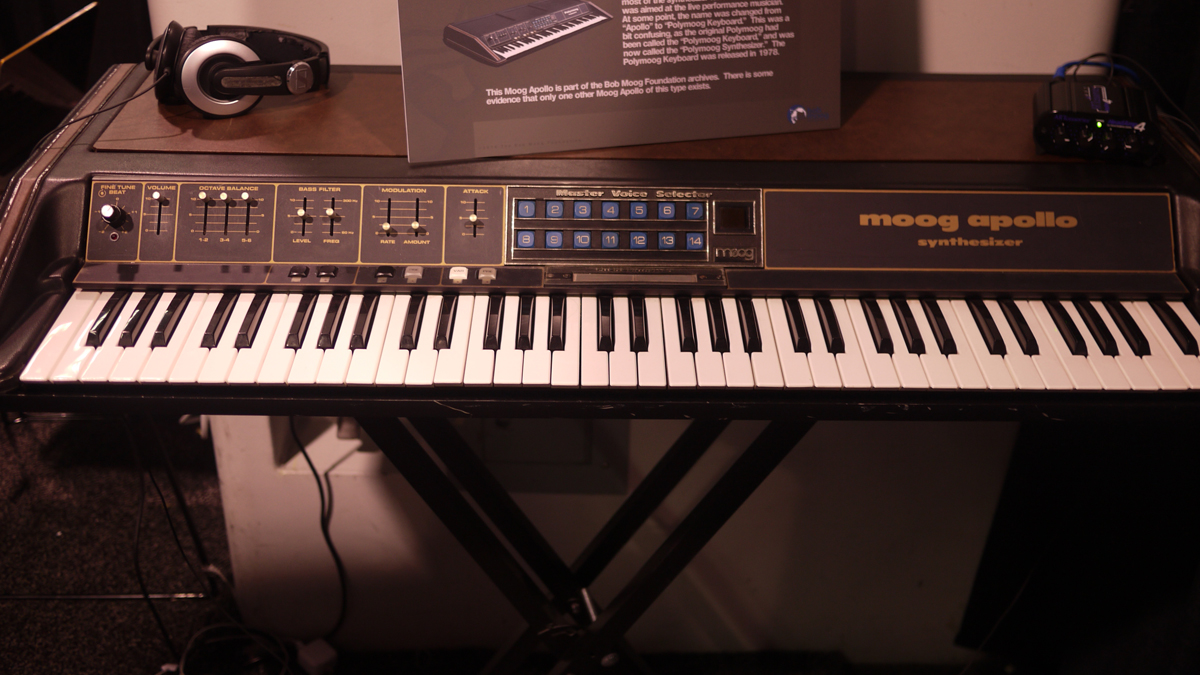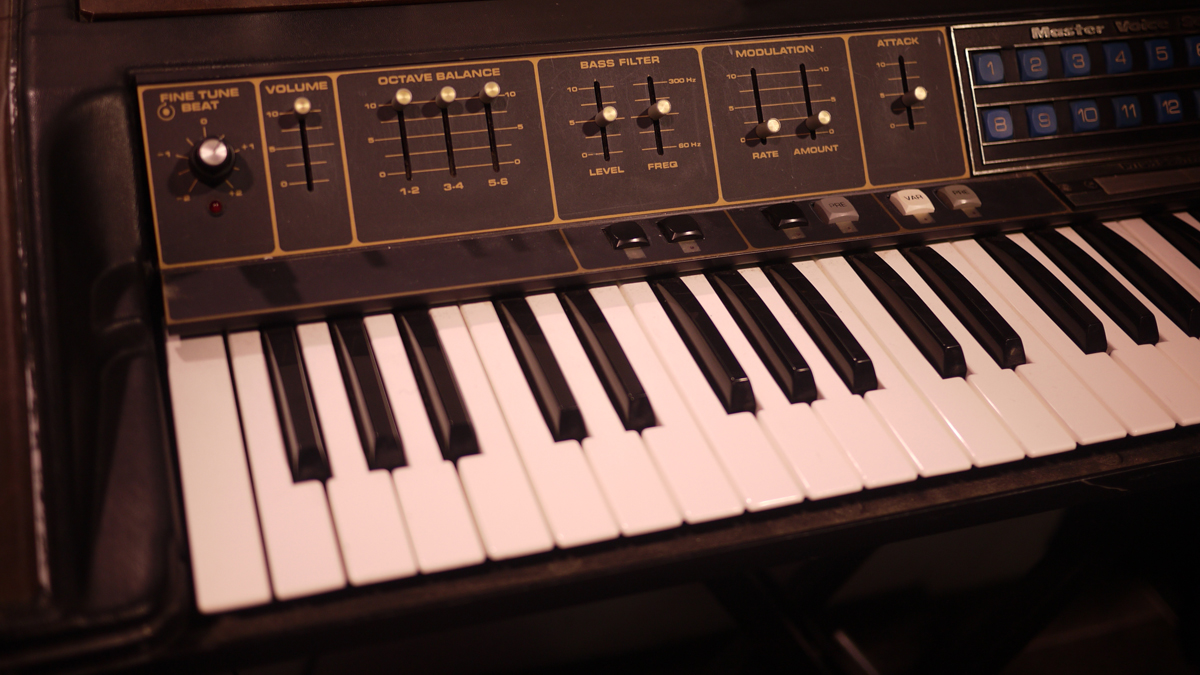NAMM 2016: Rare synthesizers donated to Bob Moog Foundation
Models of yesteryear in pictures
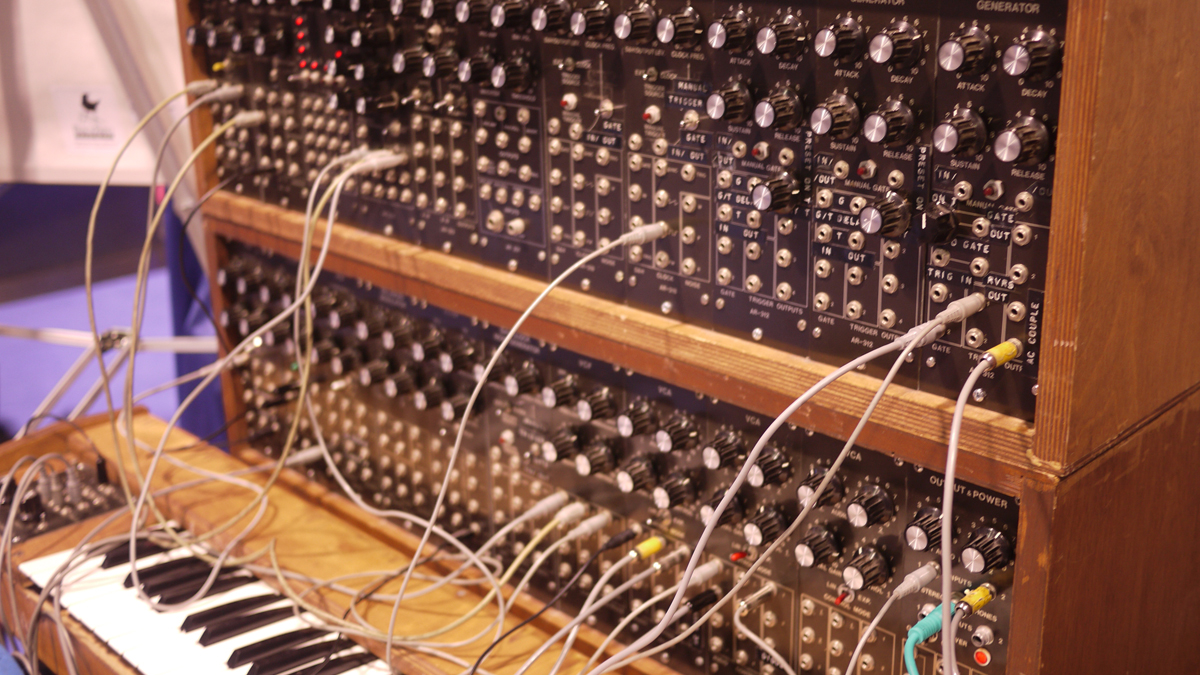
You don't see synths like this every day...
NAMM 2016: Bob Moog’s innovations in synthesis had an impact on almost every genre of music. The Bob Moog Foundation, a small non-profit organisation, carries his pioneering legacy forward to future generations. Its mission is to “ignite creativity at the intersection of music, science, history and innovation”.
Regulars at the NAMM show, this year’s Bob Moog Foundation stand boasted some rare examples of classic synthesizers. Here, we take a look at a one-off Moog Modular controller, the Aries System 300 and the Moog Apollo.
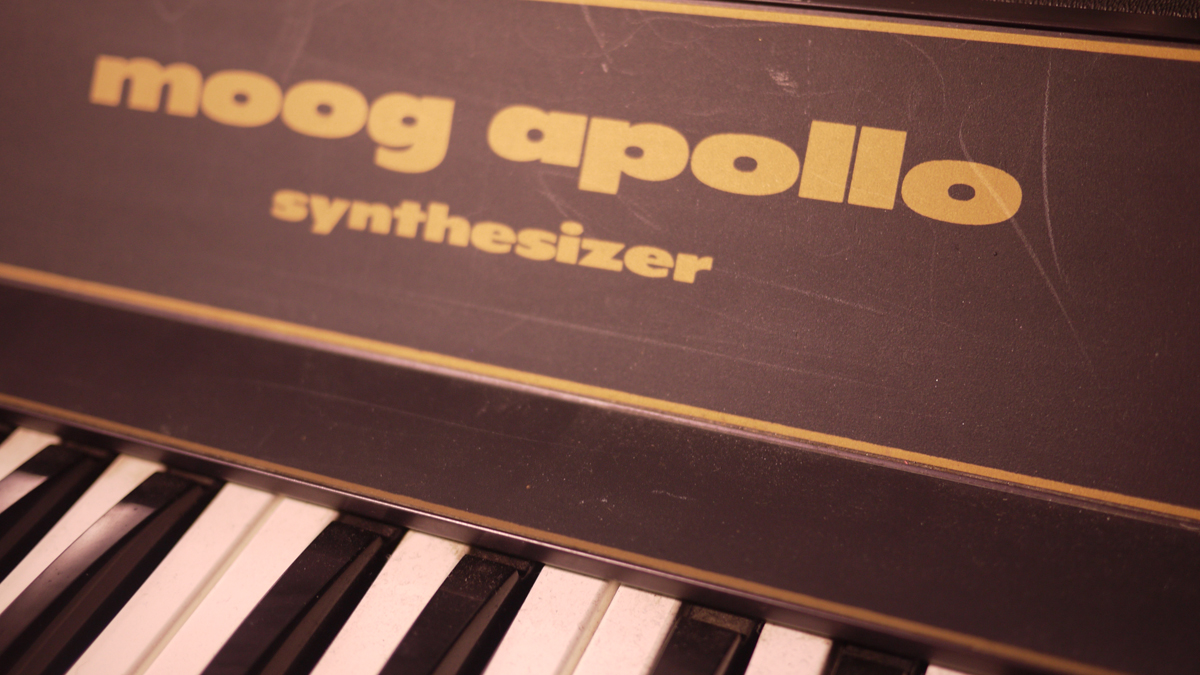
'Let's go back to the rocket!'
In 1978, Moog Music (then owned by Norlin) decided to release a simplified ‘preset version’ of the Polymoog, which bore a similarity to the prototype and so got the name Apollo.
The model on display is thought to be one of only two in existence and was recently painstakingly restored to help UVI to create its new PX Apollo soft synth.
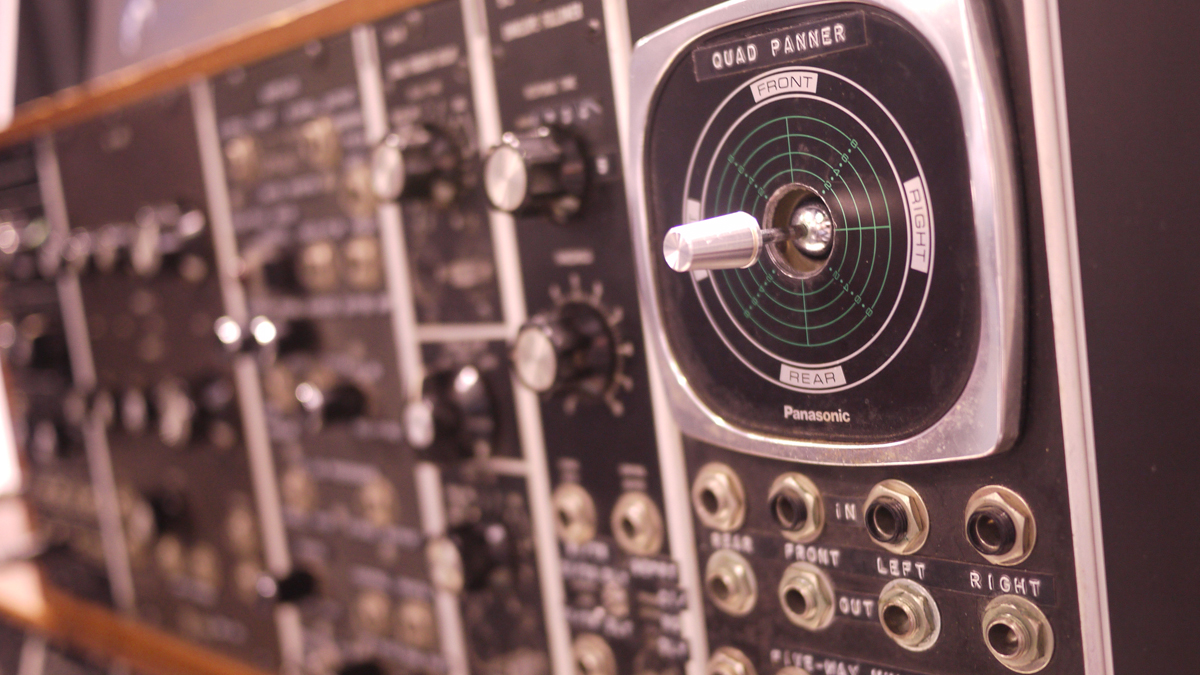
Roger Powell
In the late 1960s Robert Powell convinced the recording company he worked for to purchase a synthesizer. The company couldn't afford a Moog, so instead opted for an EMS VCS3.
He soon discovered an aptitude for all things synth, and after failing to convince Moog that he should be employed to demonstrate their synthesizers, Roger took a turn working for ARP instead.
Fast forward three years and Roger approached once again Moog - this time they accepted his offer.
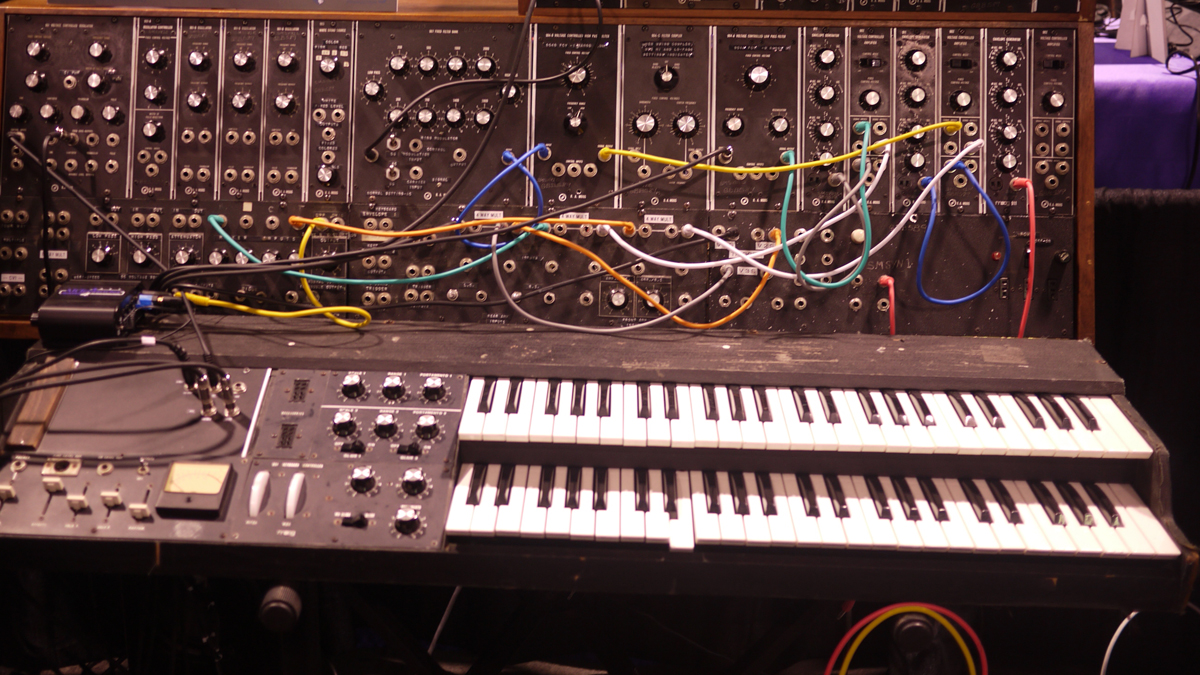
Supersynth
Moog’s parent company Norlin authorised the creation of this $12,000 supersynth for Roger to use in his demonstrations. The System 55 was the largest model made by Moog, and Powell's setup featured two of them.
However, he needed something special to control this new beast, so Norlin sent along its best custom-designer: Robert Moog. The result? A two manual keyboard with live volume control of multiple patches
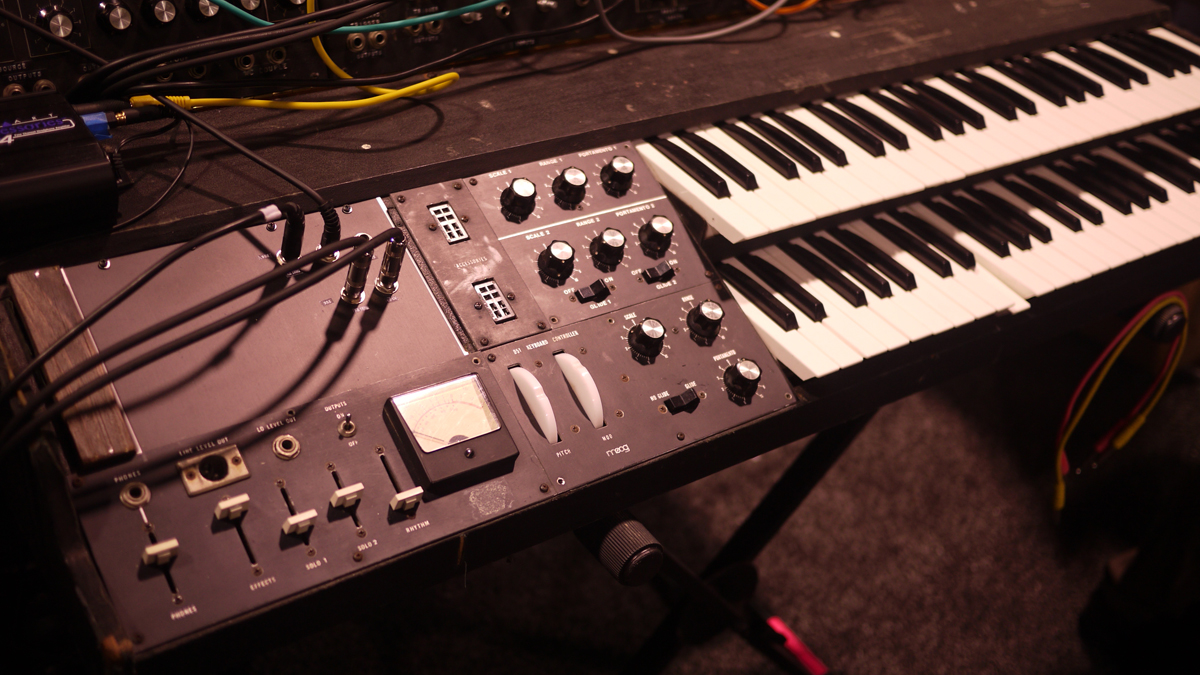
Tragedy
During a two-night show in the late '70s, Roger's band Utopia had left their gear on stage overnight. Unfortunately, somebody had snuck in and stole Powell's controller, no doubt totally unaware that it was rendered useless on its own.
The one slight ray of light was that Roger's System 55s were left unscathed during the break-in. However, fate caught up with them eventually as they were later destroyed in a warehouse explosion.
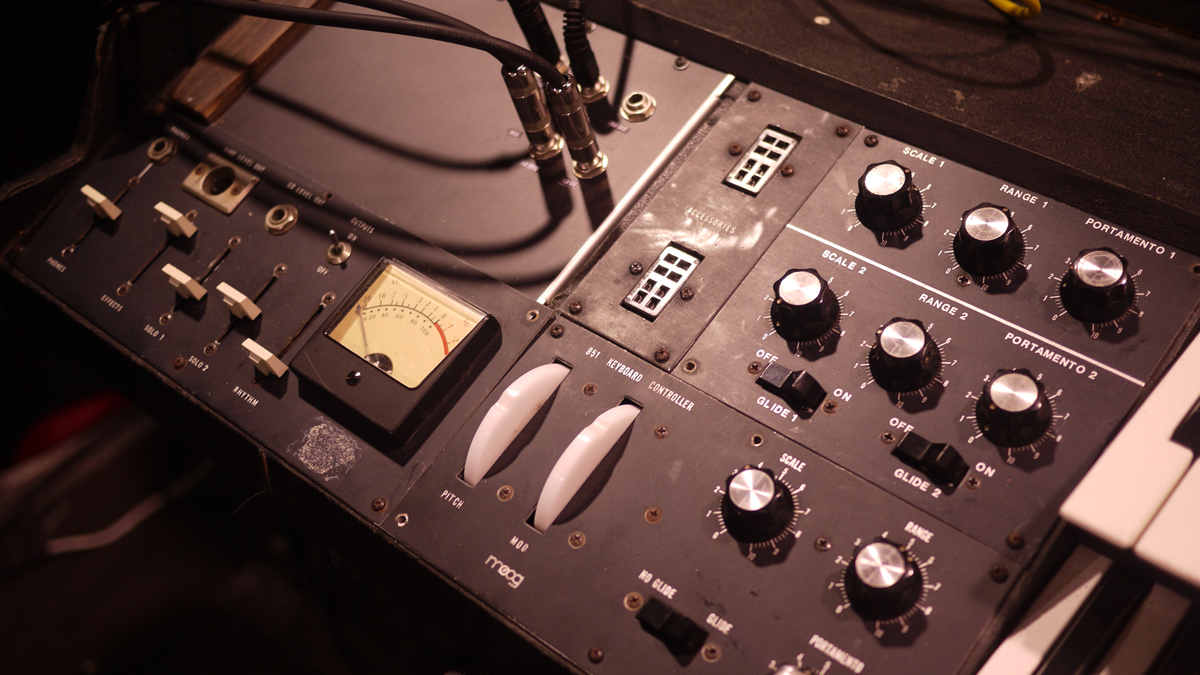
Lost and found
While it seemed that all hope of recovering the stolen controller was lost, in 2002, former editor of Keyboard Magazine Dominic Milano noticed an eBay listening for a keyboard that looked suspiciously like Powell's controller. Milano immediately called Powell and, sure enough, it was the stolen keyboard.
In 2012, Robert Powell donated the controller to the Bob Moog Foundation, where work has begun to restore it to its former glory. Just to think - if it hadn't have been stolen it would've most certainly perished with the System 55s.

I take care of the reviews on MusicRadar and Future Music magazine, though can sometimes be spotted in front of a camera talking little sense in the presence of real musicians. For the past 30 years, I have been unable to decide on which instrument to master, so haven't bothered. Currently, a lover of all things high-gain in the guitar stakes and never one to resist churning out sub-standard funky breaks, the likes of which you'll never hear.


